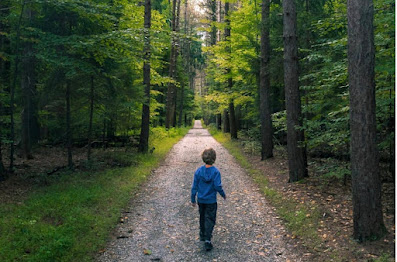“The addition of Nolde Forest into the Old-Growth Forest Network is a tremendous honor for DCNR,” Dunn said. “I will forever be grateful to the Old-Growth Forest Network for its work to identify and support forests in Pennsylvania and across the U.S. This designation should remind all Pennsylvanians of the forest heritage of Penn’s Woods, the amazing recreational and educational opportunities forests provide, and the importance of being good stewards of our natural spaces like this one.”
Nolde Forest Environmental Education Center encompasses more than 700 acres of deciduous woodlands and coniferous plantations — some nearing 120 years of regrowth. A network of nearly 10 miles of walking trails makes the center’s streams, ponds, and diverse habitats accessible to visitors from 8:00 a.m. to sunset daily.
The Nolde Forest is situated within the Schuylkill River Valley – the traditional homeland of the Lenape People.
For thousands of years prior to European contact, the Lenape People and their ancestors hunted, gathered, farmed, and traveled on the land that encompasses the Schuylkill River Valley and its tributaries.
“This is a place where visitors come to enjoy a relaxing walk along the stream,” Nolde Forest Manager Brent Erb said. “Volunteers come to study water quality, repair trails, and host special fundraising events. Students visit to learn about our ecosystem and the interconnections between people and nature from our dynamic educators. Because of our shared commitment to natural resource stewardship, this partnership with the Old-Growth Forest Network is a natural step toward advancing ecological literacy and accessible forests. It’s the people who come here to Nolde Forest Environmental Education Center, and the habitat and wildlife we all love that makes this place special.”
Nolde Forest is a biodiversity success story and a unique member of the Old-Growth Forest Network.
Five generations ago, nearly every tree had been cut down by European settlers, including colliers making charcoal for the iron industry, farmers clearing land, and lumbermen who felled trees for sawmills.
What had been a place of abundant natural resources until the 1600s, had become nearly devoid of wildlife due to the industries of the day.
The Old-Growth Forest Network is a national organization working to preserve ancient forests for the enjoyment of present and future generations.
In counties capable of supporting forest growth, the network identifies at least one forest that will be protected from logging and open to the public.
Founded in 2012 by Dr. Joan Maloof, the network currently has 184 forests in the Network across 32 states. Nolde Forest joins 26 other Pennsylvania forests already in the network.
“Pennsylvania is leading the nation in the quantity of old-growth forests dedicated to the Network,” Mid-Atlantic Director of the Old-Growth Forest Network Brian Kane said. “Pennsylvania shows a remarkable commitment to the preservation of old-growth forests and the DCNR has shown huge support for the protection of these valuable national resources. We could not grow the old-growth network without our volunteer county coordinators, who help us with forest identification and observations. We are also grateful to the district foresters at DCNR who share the amazing stories of these cherished lands with all of us.”
Jacob Nolde, a German immigrant known for his successful knitting mills acquired today’s forest land in 1904. At that time, a single white pine grew near the sawmill on Angelica Creek.
Inspired by this tree and his knowledge of European forestry practices, Nolde began planting trees. By 1910, he was recognized nationally for his forestry practices.
Nolde Forest Environmental Education Center was forever protected in 1966 when the Commonwealth of Pennsylvania purchased the land from the family to establish the first environmental education center in Pennsylvania.
Visit DCNR's Nolde Forest Environmental Education Center webpage for more information on programs and events.
Visit Explore PA Trails and Get Outdoors PA for recreation areas near you.
For more information on state parks and forests and recreation in Pennsylvania, visit DCNR’s website, Visit the Good Natured DCNR Blog, Click Here for upcoming events, Click Here to hook up with DCNR on other social media-- Facebook, Twitter, YouTube and Flickr.
Related Articles:
-- Vote Now! For Pennsylvania’s 2023 River Of The Year [PaEN]
-- Foundation For Sustainable Forests Highlights Recent Jim Finley Stewardship Day; Thompsons’ Wood Stream Survey; A Hooded Warbler’s Story [PaEN]
[Posted: November 30, 2022] PA Environment Digest


No comments:
Post a Comment